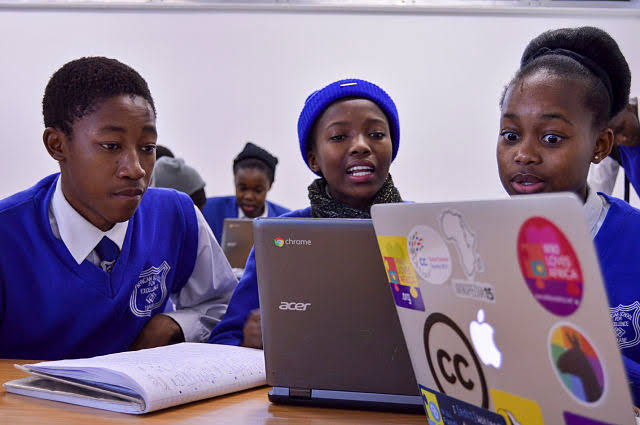Group Awards ₦5m Grant to Boost Girls’ Digital Education in FCT

Group Awards ₦5m Grant to Boost Girls’ Digital Education in FCT
The Development Research and Project Centre (dRPC) has awarded a ₦5 million grant to the Rising Hope Girls’ Educational Foundation (RHGE) to establish digital laboratories in ten underserved communities within the Federal Capital Territory (FCT).
The initiative is designed to narrow the digital divide and expand access to educational technology for young girls in communities with limited resources.
Emphasising the importance of investing in girls’ education, the Executive Director of dRPC, Dr. Judith-Ann Walker, said, “At the dRPC, the education of our children is a commitment, and we will continue to invest in it.”
Speaking during the commissioning of a digital lab at Junior Secondary School, Chikakore, Kubwa, Walker — represented by the Director of Partnerships Development and Communication, Hassan Karofi — highlighted the funding struggles of local NGOs. She expressed concern over recent cuts in overseas funding.
“Last year, when the United States government stopped funding global non-profit organisations through USAID, our organisation was one of the NGOs that lost funding. If we could feel the negative impact, one can only imagine the impact of that loss on smaller indigenous NGOs,” she explained.
Project Director of RHGE, David Ahanor, noted that the digital labs are fitted with computers, whiteboards, and internet modems to serve both students and teachers. “These labs are now serving as hubs where students can learn and teachers can explore the creative use of technology,” he said.
He added that the initiative had already started transforming schools. “Before we started this project, many schools faced challenges due to limited access to digital resources. But students are now confident about using these tools to enhance their digital rights, and issues of bullying and sexual harassment are now being combated.”
Ahanor further explained that the project is providing scholarships and training support. “Teachers across Byzhin, Kubwa, and Dutsen-Alhaji are now using AI in pre-lesson modes and leading safe school advocacy to empower their students,” he pointed out.
The program aims to support 100 girls with school fee grants—benefiting 20 in each participating community school—while more than 150 teachers have already been trained in AI literacy and safe school practices. Additionally, over 500 students have received data training, and about 400 parents and youth have participated in community campaigns on sexual harassment and bullying.
“Our work has led to strong advocacy on crucial issues such as sexual harassment and bullying in schools. We aim to support our schools, teachers, students, and communities with the tools necessary for a brighter future,” Ahanor stressed.
The principal of JSS Chikakore, Ishaya Dogo, described the project as life-changing for children in underserved communities. “To our donors, we are deeply grateful. Your contribution of desktops will help our students learn better, and your scholarship will give our children a brighter future; this is an act of kindness we will never forget,” he said.
Also speaking, the Acting Executive Chairman of the Universal Basic Education Board (UBEB), Dr. Alhassan Sule, welcomed the collaboration. “When it comes to the issues of computer education, there is no compromise. We welcome more NGOs that want to come and contribute to the education of our children,” he stated.
The event was attended by representatives of the Parents Teachers Association and local community leaders, who praised the programme for its impact






